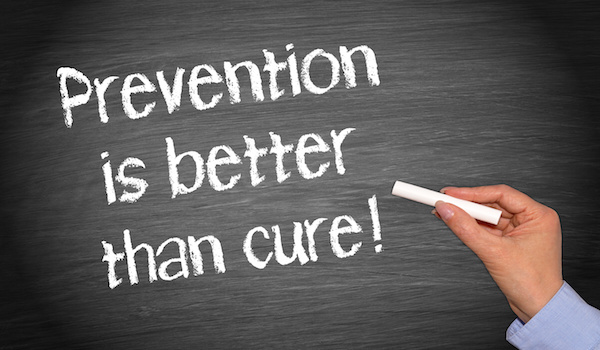
TUESDAY, Oct. 11 (HealthDay News) — Men taking supplemental vitamin E may be increasing their risk for prostate cancer by up to 17 percent, a new study suggests. But the reason for the association is unclear, the researchers say.
“Practically, this means for every 1,000 men who take vitamin E, 76 men get cancer, compared with 65 if they were taking placebo,” said lead researcher Dr. Eric A. Klein, chairman of the Glickman Urological and Kidney Institute at the Cleveland Clinic.
The new finding comes on the heels of a study released Monday that found that dietary supplements — including multivitamins, which often contain vitamin E — are associated with worse health in older women.
Why vitamin E might increase the risk for prostate cancer isn’t known, Klein said. “There’s a biologic implication here we don’t understand. But what it suggests is that vitamins can potentially be harmful,” he said.
The study is published in the Oct. 12 issue of the Journal of the American Medical Association.
For the study, Klein’s team looked at whether vitamin E or selenium — a mineral supplement — increased the risk of prostate cancer among men who took part in the Selenium and Vitamin E Cancer Prevention Trial (SELECT).
In 2008, initial reports from the trial found neither vitamin E nor selenium reduced the risk of prostate cancer. Instead, there appeared to be an increased, although insignificant, risk tied to vitamin E.
The updated finding was based on an analysis of nearly 35,000 men randomly assigned to receive selenium (200 micrograms/day), vitamin E (400 IU/day), both supplements or a placebo for 5.5 years. The men were followed through July 5, 2011.
Since the 2008 report, another 521 cases of prostate cancer were diagnosed. Of these 113 were among men taking the placebo, 147 taking vitamin E, 143 taking selenium and 118 taking both supplements, the researchers found.
Although the rate of prostate cancer was greater among men taking supplements compared to a placebo, it was statistically significant only among men taking vitamin E alone, with a 17 percent increased risk of the disease, Klein’s group found.
Among all the men in the trial, 529 men taking placebo developed prostate cancer as did 620 men taking vitamin E, 575 men taking selenium and 555 men taking both supplements, the researchers noted.
The effect of vitamin E only became clear during the third year of the trial and was seen in men with both low- and high-grade prostate cancer. This finding indicates that the risk of prostate cancer from vitamin E may continue even after the men stop taking it, the study authors added.
“There is not a lot of evidence that, for healthy people who eat a normal diet, taking supplementary vitamins is beneficial,” Klein said. “There is no compelling evidence for taking vitamin E at this dose. It doesn’t provide any health benefits and SELECT strongly suggests it increases your risk for getting prostate cancer.”
Because more than 50 percent of men 60 and older take supplements containing vitamin E and 23 percent take as much as 400 international units (IU) a day despite the recommended daily dietary allowance of only 22.4 IU, the implications of this finding are “substantial,” the study authors said.
Speaking for the supplement industry, Duffy MacKay, vice president for scientific and regulatory affairs at the Council for Responsible Nutrition, questioned the importance of the findings.
“Interestingly, when vitamin E was combined with selenium, the risk was reduced to a non-significant statistic, perhaps even the result of chance. This reinforces the theory that vitamins work synergistically and that drug-like trials of nutrients, when used in isolation from other nutrients, may not be the most appropriate way to study them,” MacKay said in a council press release.
Also commenting on the study, prostate cancer expert Dr. Anthony D’Amico, chief of radiation oncology at Brigham and Women’s Hospital in Boston, said that taking large doses of supplements “may cause some harm.”
However, D’Amico said the risk of getting prostate cancer linked to vitamin E is very small.
“In terms of people thinking, ‘If I take vitamin E, I am going to get prostate cancer,’ they have to be careful because the study looked at so many subgroups that it’s hard to know for sure if this marginally significant risk for prostate cancer is by chance or not,” he said.
However, D’Amico thinks that men should not be taking large doses of vitamin E. “There is no benefit,” he said. “Whether there’s harm or not, I am unsure, but to be safe, I don’t think it’s worth taking.”
More information
For more information on prostate cancer, visit the American Cancer Society.

